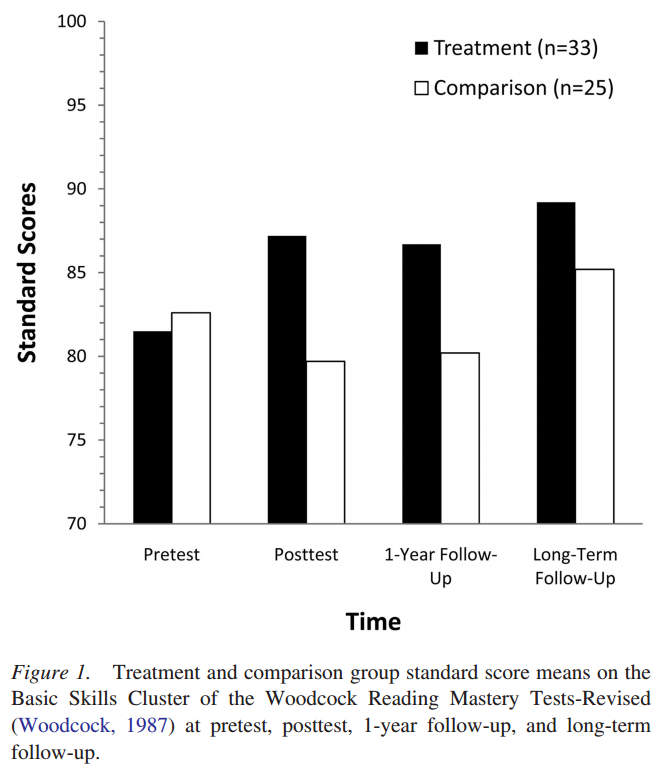"Remediation in Education Is Unlike Vaccination. It Is More Like Insulin Therapy."
In either second or third grade of elementary school, children may be reaching the expected reading level or not. Interventions are therefore often recommended for those who are struggling. These interventions can include lessons and strategies to help improve word recognition, fluency and spelling. These interventions may be as extensive as a one-on-one fifty minute tutoring session, five times a week. These may also take place for a period of eight months. Such intervention is, of course, expected to show good results. And it usually does.
There is no argument that learning is lifelong. The question then is whether interventions need to be ongoing as well. Do interventions work in one shot? Are the effects long lasting? Blachman and coworkers have found an opportunity to answer this question by returning to an original study a decade ago. Children from several schools in New York participated in a well-controlled randomized study on how much struggling readers benefit from interventions. The initial effects are indeed quite significant, but after a year, their is no sustained increase in progress. Now that ten years have passed, Blachman and coworkers have revisited the original participants to see if effects are still present. Here are their findings, summarized in the following chart:
There is no argument that learning is lifelong. The question then is whether interventions need to be ongoing as well. Do interventions work in one shot? Are the effects long lasting? Blachman and coworkers have found an opportunity to answer this question by returning to an original study a decade ago. Children from several schools in New York participated in a well-controlled randomized study on how much struggling readers benefit from interventions. The initial effects are indeed quite significant, but after a year, their is no sustained increase in progress. Now that ten years have passed, Blachman and coworkers have revisited the original participants to see if effects are still present. Here are their findings, summarized in the following chart:
 |
| Above copied from
Intensive reading remediation in grade 2 or 3: Are there effects a decade later?
Blachman, Benita A.; Schatschneider, Christopher; Fletcher, Jack M.; Murray, Maria S.; Munger, Kristen A.; Vaughn, Michael G.
Journal of Educational Psychology, Vol 106(1), Feb 2014, 46-57. http://dx.doi.org/10.1037/a0033663
|
At first glance, it may seem that effects are long lasting. Those who went through the intervention are still scoring on average higher than those who did not. However, a closer inspection reveals that these differences are actually not significant. Looking at the individual tests, the results between the two groups are not really different.
 |
| Above graph based on data from
Intensive reading remediation in grade 2 or 3: Are there effects a decade later?
Blachman, Benita A.; Schatschneider, Christopher; Fletcher, Jack M.; Murray, Maria S.; Munger, Kristen A.; Vaughn, Michael G.
Journal of Educational Psychology, Vol 106(1), Feb 2014, 46-57. http://dx.doi.org/10.1037/a0033663
|
The error bars (vertical bars) on each column represent the standard deviation within each group. With these bars, it is clear that the blue and red do not differ significantly from each other (except in basic reading skills). The authors conclude that the above findings suggest that interventions need not be a one-shot or one-year deal. Students who need support in the early years still require interventions to sustain their academic progress or development.
The following is the abstract of the paper authored by Blachman and coworkers:
 |
| Above copied from
Intensive reading remediation in grade 2 or 3: Are there effects a decade later?
Blachman, Benita A.; Schatschneider, Christopher; Fletcher, Jack M.; Murray, Maria S.; Munger, Kristen A.; Vaughn, Michael G.
Journal of Educational Psychology, Vol 106(1), Feb 2014, 46-57. http://dx.doi.org/10.1037/a0033663
|
Comments
Post a Comment